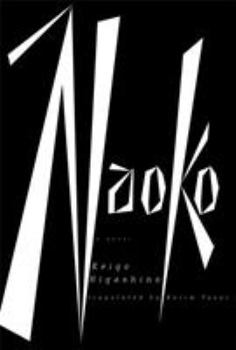Naoko
Detective story writer and winner of the prestigious Japan Mystery Writers Association Award, Higashino has created in Naoko a surreal story of a man whose dead wife's soul seems to have taken up residence in his daughter. A funny, poignant and intelligent commentary on gender relations that develops through ingenious plot twists, this novel was a major bestseller in Japan.
Format:Paperback
Language:English
ISBN:1932234071
ISBN13:9781932234077
Release Date:October 2004
Publisher:Vertical
Length:288 Pages
Weight:0.76 lbs.
Dimensions:0.8" x 5.3" x 8.0"
Age Range:16 years and up
Grade Range:Grade 11 and higher
Related Subjects
Contemporary Fiction Ghosts Horror Literature & Fiction Mystery Mystery, Thriller & SuspenseCustomer Reviews
3 ratings
Amazing mystery
Published by Thriftbooks.com User , 17 years ago
In the vein of Murakami, Naoko's author revealed a world that is not quite real, but is decidedly on the brink of Japanese change. Welcome a bus accident and switching of personalities and, well, the mystery develops from there. I can't wait for the next book by this author!
Emotionally gripping, thoughtful story
Published by Thriftbooks.com User , 19 years ago
I was surprised I had such a visceral reaction to the story, and strongly recommend this book. The story is very deep, and the events made me think all the time about myself and the characters. This would be a great book club book because it makes you think about and want to discuss your personal relationships, your own emotions and feelings, and how you would handle situations in the book. The characters and what happens to them brought out very real emotions in me. I unconsciously made faces as I reacted to what was happening. This was one of those books that really touched me and I can't recommend it enough. I feel like I have had, or could have, the same feelings and fears that are displayed in this book. That helped me identify with the characters and I would recommend this book to anyone looking for a deep, personal, and very interesting story.
An Interesting Tale
Published by Thriftbooks.com User , 19 years ago
Naoko is a tale of metempsychosis--the transference of the mind or spirit of one person into the body of another. Heisuke Sugita is a blue color worker in Japan, assembling fuel injectors in an auto parts factory in suburban Tokyo. One morning while watching tv, he sees a news report about a bus accident near the sky resort town of Nagano. It takes several minutes before he realizes that it is the bus his wife Naoko and eleven year old daughter Monami were taking to visit relatives. Naoko dies in the bus crash, while Monami is left in a coma. When Monami regains consciousness, she tells Heisuke she is Naoko, that the spirit of the mother has taken over the body of the daughter. What follows are the social and psychological consequences of this apparently supernatural event, for Heisuke, and for Naoko/Monami. They decide to tell no one, to keep it a secret. In fact, the Japanese title of the book, Himitsu, means Secret. Once Heisuke becomes convinced that the metempsychosis is real, and permanent, he grieves because he has lost his daughter, while all those about him think he has lost his wife. For "Naoko" to maintain their secret, she must continue Monami's life as an elementary school student. The author, Keigo Higashino, carefully and skillfully works out the logical consequences of this event. How would a married man, of normal sexual desires, deal with a situation where the spirit of his wife is inhabiting the body of his young daughter? Higashino does deal with the issue of conjugal relations, although briefly, and in a non-salacious way. Most of the book dwells on the development of Naoko/Monami, as she matures socially. In a sense, it is answering the question, what would you do if you were a middle aged housewife, and you suddenly and unexpectedly got to live your life over again, from the age of eleven? What would you do differently? Could you, in fact, correct your life's mistakes? Could you become a better person? And in a question fraught with tragedy and irony, what do you do when your husband is now, physically, your father? I read this book in two days. My basic impression is that it is interesting and thoughtful. It's not exciting, it's not gripping, but it is satisfying. Not a great book, but a pretty good book. Worth buying, if you like that kind of thing. One quibble: The English translation, by Kerim Yasar, consistently writes "all right" as "alright." Perhaps this was done to reflect Heisuke's lack of education, paralleling something in the underlying Japanese, but it's jarring, and ineffective.






